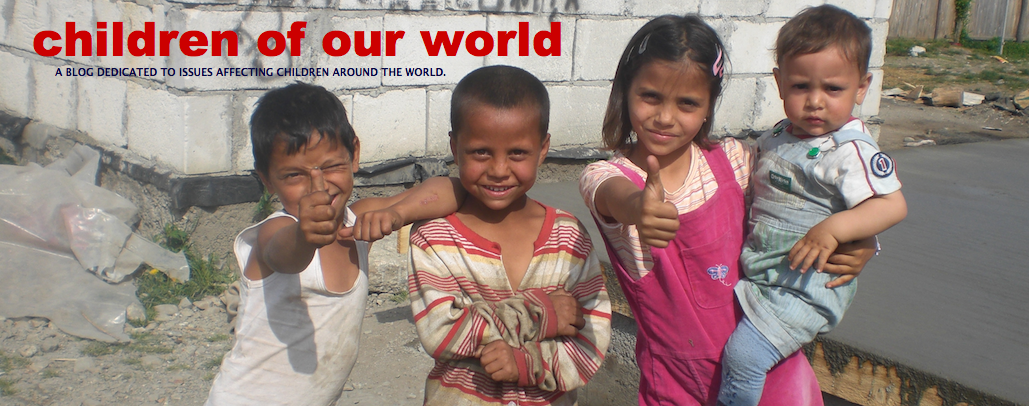September often brings newness to children (in the northern
hemisphere, anyway). It is the start of a new term and a new school year. This
often comes with new school items, and new uniforms. And how will children get to school on the first day of the new term, and throughout the year? They may be able to walk or cycle, or if they live further away, use public transport, or get a lift from a parent or carer. They may have a school bus. In all honesty, this was not a topic I gave much thought to until recently. A South African organisation, that I do legal research for, asked me to look into transport as part of the child's right to education.
New things for school: Last month, my charity, Children's Helpers Worldwide supported a local organisation, Refugiu,
so it could provide school items for some Roma children, living in a poor village.
In a Colombian case, a girl of five had been placed in a school in another neighbourhood, due to a school quota system. The Court ordered the Government to relocate the girl to a closer school and said that, in acknowledging the transport costs in getting the child to school, the system had not taken into account the mother's lack of income and the time required to bring her daughter to the assigned school.
Sometimes schools or charitable organisations will try to help
with transport. My charity, Children's Helpers Worldwide, works with an organisation in Ghana, called New Life. New Life runs a children's home and school. Children from the surrounding
villages attend the school, alongside the children who live in the home. The director of New Life wants to fundraise
to buy a minibus. New Life could then provide safe transport for children who
live far away. This would help children who currently have to walk a very long way to attend the school and would also reach children who do not go to school at all, as the distance to travel is too far.
School Assembly at New Life, Ghana.
It may be that children and teenagers take it upon themselves to find ways to get to and from school, or to get money for transport, as shown by this disturbing article from South Africa, entitled "Dressing "sexy" to get a lift to school". Ground Up News spoke with schoolgirls in the township of Khayelitsha, in Cape Town, who were trying to get back to their homes in Mfuleni. They explained that, by dressing sexily, they can either get a lift, or get money for transport, from passing drivers. One explained that this was better than the alternative:
"When we [hitchhike] and the driver talks about sex or touches you and you get uncomfortable, you have a choice to react in a certain way. But when you are walking and someone strangles you, there is little you can do, especially when you are in an open field like the one near Mfuleni."
It is unbelievably sad that adults would take advantage of children who are just trying to get to and from school.
Children's access to education is greatly affected by their access to transport. Children should not be prevented from getting an education because the nearest school is too far away. They should not be harassed and abused whilst simply trying to travel to and from school. If we want to achieve the Millennium Development Goal, to ensure all children have access to primary education (at least!), then we must ensure that children can actually get to school, and obtain an education. This is their right.
---------
This post is my contribution to Blog Action Day, taking place on 16 October 2014. The theme is inequality. Use the twitter hashtags #BAD2014 and #BlogAction14 to follow all the action and to find more bloggers posting about inequality!
---------
This post is my contribution to Blog Action Day, taking place on 16 October 2014. The theme is inequality. Use the twitter hashtags #BAD2014 and #BlogAction14 to follow all the action and to find more bloggers posting about inequality!

.jpeg)
.jpeg)













